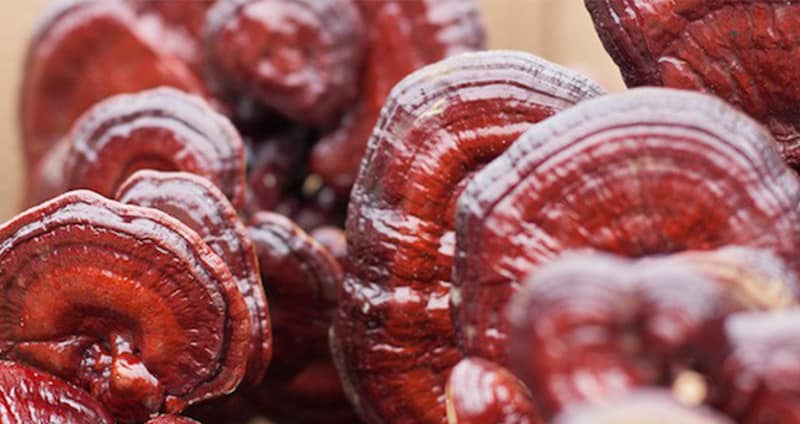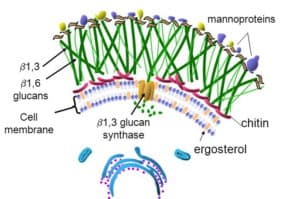Menu



A new study was recently published by Nature, who releases the most prestigious scientific journals, entitled “Evaluation on quality consistency of Ganoderma lucidum dietary supplements collected in the United States”. The study was performed in partnership with the US Pharmacopeia (USP), who sets standards for pharmaceuticals, food ingredients and dietary supplement ingredients.
In the study, they tested 19 different reishi mushroom supplements and compared them to the actual mushroom. They analyzed the polysaccharides and triterpenes and found that only 5 samples (26%) passed their tests.
USP concluded by saying “the quality consistency of Ganoderma lucidum dietary supplements in the U.S. market was poor, which should be carefully investigated”.
That is quite the statement.
Since day 1, Real Mushrooms has been telling people about the difference in product quality and how many products aren’t made from the mushroom and contain high amounts of grain filler. This is reassuring for us as it confirms what we already know.
Now, I know what you’re thinking. What about our Reishi 415?
Thankfully our supplier, Nammex, was able to submit samples to this study and 3 of 5 (60%) approved samples were from them.
The extract tested in this study is the same extract we use for our Reishi 415. It's also the same reishi extract we use in our 5 Defenders blend.
You can read more details from Nammex's press release here.
“...triterpenes closely related to G. lucidum (GL20) were only detected in 8 out of 19 (42.1%) tested products based on HPTLC analysis”
The study found that 58% of samples did not have triterpenes. Triterpenes are one of the primary beneficial compounds in reishi alongside beta-glucans. Triterpenes account for the bitter taste in reishi. A reishi product that is not bitter or is sweet is a good indicator that no triterpenes are present and it is likely of poor quality.
This is also common in mycelium based products as the triterpenes develop in the mushroom from the wood it grows on. The Nammex report also confirmed this.
So taste your reishi. Is it bitter?
“Starch-like polysaccharides were detected in 13 out of 19 (68.4%) tested products”
The reason we measure starch on all our products is to show that they are completely pure with no added fillers. Just pure mushrooms.
The study stated that “starch-like polysaccharides, absent in fruiting body of G. lucidum, are frequently employed as excipients, or neutral fillers in dietary supplements.”
This is why it is so important for mushroom supplements to measure the starch component. Fillers like grains, dextrose and maltodextrin are commonly used to dilute products.
Not only that, the starch from these fillers will boost polysaccharides numbers which companies commonly use to boast about the quality of their products. We’ve already gone over why polysaccharide numbers are a poor measure of quality.
Simple rule: Ignore polysaccharide numbers.
What was really awesome is that they did an iodine starch test to test for starch. We recommend this test all the time to test for starchy fillers like grain. You can buy our kit for only $5 or grab some iodine from your local drug store. It's a very cheap and easy test that anyone can do at home.
“The data indicated that branched 1,3-β-D-glucan, a specific polysaccharide with immunostimulatory and anti-tumor activities in G. lucidum, was only detected in 5 out 19 (26.3%) tested products”

The cell walls of all medicinal mushrooms are primarily made up of beta-glucans. This is why beta-glucans are the most abundant active compound and occur in the highest amounts. Measuring beta-glucans using the Megazyme method should be required for any medicinal mushroom product. This is not to say beta-glucans are the only compound that matters but if they are present in a substantial amount, all of the other compounds should be present as well.
If a product lacks in beta-glucans, it likely lacks in all the smaller compounds as well that do not get measured.
Look for beta-glucan measurements on the label.
We've had a lot of people ask: "who were the brands tested? we need to know."
I agree but unfortunately, USP did not release this information.
But there are a few things we can take away from this; mainly the testing protocols. They tested for beta-glucans, triterpenes, and starch. This is exactly what our Reishi 415 lists on the label and should be a good baseline for any reishi product.
Another interesting note is sample GL17 which in the study is classified as "Reishi mycelia". You'll note that they found it to lack triterpenes and polysaccharides common to reishi mushroom. The Reishi mycelia also showed the presence of "starch-like polysaccharides" so it could actually be reishi myceliated grain, which would be not surprising if they bought all these products in the US like they said they did.
These are some common questions to ask when selecting a reishi mushroom product:
It's great to see USP put out data like this to show the differences in reishi products. At Real Mushrooms, we want you to get the real thing so you can be confident that you're able to obtain all the great benefits of reishi. We do this by measuring beta-glucans and triterpenes and starch. This ensures that the important active compounds are present and there are no starch-like fillers added.
 .
.Disclaimer: The information or products mentioned in this article are provided as information resources only, and are not to be used or relied on to diagnose, treat, cure, or prevent any disease. This information does not create any patient-doctor relationship, and should not be used as a substitute for professional diagnosis and treatment. The information is intended for health care professionals only. The statements made in this article have not been evaluated by the Food and Drug Administration. Any products mentioned are not intended to diagnose, treat, cure, or prevent any disease. The information in this article is intended for educational purposes. The information is not intended to replace medical advice offered by licensed medical physicians. Please consult your doctor or health practitioner for any medical advice.